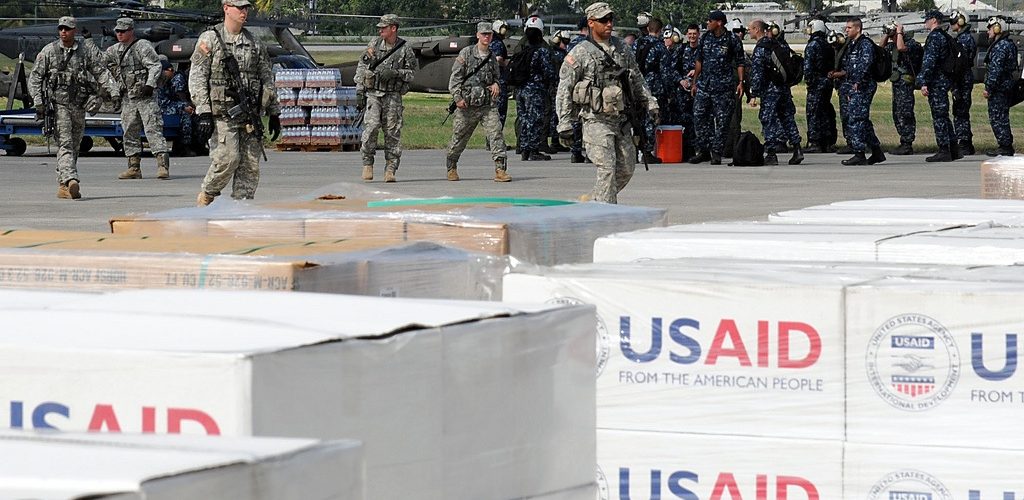Cutting foreign aid leaves US with only one option, military action…
First, let me be clear—I agree with the need to increase the Pentagon’s budget. We need to recapitalize our military after over a decade of wars. We have planes that can’t fly due to a lack of spare parts, we are exhausting our inventory of smart munitions, and we are starting to lag behind other nations in military R&D. These problems need to be addressed sooner rather than later as we face increasingly assertive states like Russia and China, as well as our continuing war against terrorist groups. There are many excellent reasons why the defense budget needs to be increased, but it should not be increased at the expense of other elements of US power—in this case, the State Department.
The plan to cut the State Department budget, particularly the aid program, is built on the false premise that it is simply money wasted on third-world countries. The State Department plays a vital role in the exercise of US power. Overseas embassies are the spearheads of US foreign policy, including representing US interests to foreign governments, helping US citizens in distress in foreign countries, conducting diplomatic negotiations, enforcing bilateral and multilateral agreements and treaties, representing the US in trade and commerce, and other essential functions of US policy. These are the people who eventually work to mend and repair relations with countries like Mexico and Germany after administration statements and policies cause consternation among our allies.
You can be sure that as a result of budget cuts, one of the things that will suffer is embassy security. Do we need another Benghazi? After numerous investigations into the lack of security at the US consulate there, is it advisable to cut security at embassies worldwide and leave them open to terrorist attacks?
The State Department also provides cover positions and support for CIA officers assigned overseas to collect intelligence. Would budget cuts negatively impact this important responsibility, thus degrading our intelligence collection against terrorist groups and other intelligence targets? Coupled with the travel ban, this makes the job of intelligence officers all the more difficult.
The US foreign aid program, part of the State Department’s budget, provides even greater US influence abroad. These aid programs grant the US with leverage with foreign governments to accomplish US security objectives. They gain us influence; they give pause to foreign governments before they take action unfavorable to American interests. Foreign aid promotes global stability and helps avoid potential conflicts, eliminating the need to place our service members in harm’s way.
US influence and power rely on many tools, not simply military power. These tools are interrelated, and changing one can negatively impact the others. Cutting the State Department’s budget will decrease overall US influence around the world, leading to the beginning of a US withdrawal from the world stage. Cutting foreign aid money leaves us with only military action as an option. This is more likely to lead to armed conflict, as we would be left with only a hammer as a foreign policy tool.
Luis Rueda is an OpsLens Contributor and retired CIA Operations Officer with over 28 years of experience in the clandestine service. During his storied career with the CIA, Rueda served as Chief of Station New Delhi and Chief of Iraq Operations during Operation Iraqi Freedom.

















